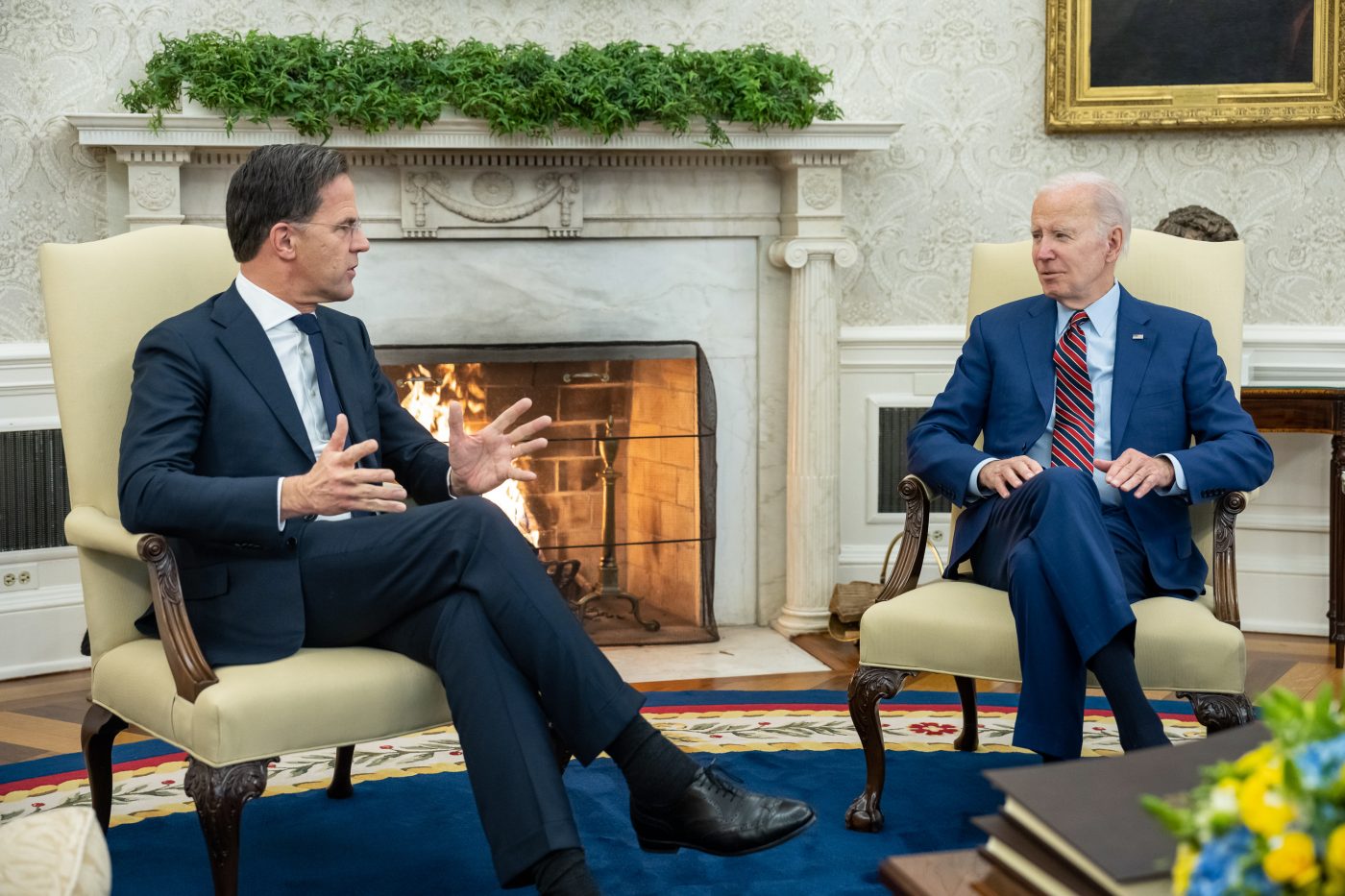US National Security Advisor Jake Sullivan last year outlined a new vision for confronting China’s rapid technological advancement, saying the US will no longer aim to “stay only a couple of generations ahead” but “must maintain as large of a lead as possible.”
Following Sullivan’s speech, the US imposed unilateral export controls to restrict China’s access to advanced semiconductor technology and called on the Netherlands, alongside Japan, to impose similar restrictions. Dutch company ASML Holding NV produces the world’s most sophisticated chipmaking machines.
The US pressure is working. In a letter to parliament published this week, Dutch Trade Minister Liesje Schreinemacher outlined “additional national export control measures,” mimicking almost verbatim the central tenets of Sullivan’s strategy: preventing Dutch goods from contributing to military deployment; preventing unwanted strategic dependencies; and preserving Dutch technological leadership.
The Netherlands is moving forward with both unilateral and multilateral actions. New national Dutch regulations are expected before summer. At the same time, the Dutch plan to notify the multilateral Wassenaar Arrangement — though Schreinemacher acknowledges this could prove ineffective, as Russia remains a member.
Europe now looks set for a fight over how to best enact export controls. Although over the past few years, the EU has beefed up its responsibilities for dual-use export controls, national governments continue to have the final say – and often sideline the Brussels-based European Commission. After Wednesday’s letter, the Commission’s chief trade official Valdis Dombrovskis called for a unified continent-wide policy. “We are ready to work with member states to develop an EU approach on export controls,” Dombrovskis told reporters.
Not everyone agrees. The Dutch, for one, don’t want to give up their sovereignty over export controls and believe it will be difficult to forge a consensus among the 27 EU member states, each with different priorities. “It is a national competence,” explains Dutch Minister Schreinemacher. Real Dutch “economic interests” are “involved.”
Expect a fight over how hard of a stance to take on China. Over the past few months, the Netherlands has enhanced investment screenings and told its officials to avoid TikTok for government work. In a recent op-ed, Dutch Prime Minister Mark Rutte made no secret that he had chosen Washington’s side in the fight against China.
But not all European leaders and experts echo Rutte. Belgian Prime Minister Alexander De Croo has accused the US of “bullying” the Netherlands. The US acting “without seriously consulting its European allies” is becoming the new normal in transatlantic tech and trade policy, says Jeremy Shapiro, research director at the European Council on Foreign Relations.
The US pressure impacts Asia, too. Japan agreed to join the US offensive on Chinese tech in January but says “no decision” has been made on details. Washington plans to sign a memorandum of understanding on semiconductors with India. The US, Japan, and South Korea also recently inaugurated an Economic Security Dialogue.
A key uncertainty is where Seoul stands. Gregory Allen, Director of the AI Governance Project at the Center for Strategic and International Studies in Washington DC, says US export control efforts could falter if South Korean industry “moves in to fill that gap” left by the US and Japan.
The economic stakes are high for Europe, too. ASML is Europe’s largest technology company by market capitalization. Some 14% of its sales went to China in 2022, and it has sold more than €8 billion worth of chip lithography equipment in China over the past decade. Although the company’s official reaction to the new Dutch controls was muted, ING analyst Marc Hesselink calculates a worst-case scenario where the new rules could impact 10% of ASML’s worldwide sales.
ASML’s leaders have expressed alarm, appearing extremely concerned about the unintended consequences of these controls. ASML CEO Peter Wennink evoked the 1973 oil crisis when describing the potential impacts of the restrictions. In his opinion, Western export controls increase incentives for China to become self-sufficient and bolster its domestic chip manufacturing.
Early signs say he’s right. China is doubling down on an autarkic, “whole nation” approach to bolstering its chip manufacturing industry. The CCP is readying a $143 billion semiconductor state subsidy package, among other proposals.
After the Dutch announcement, Beijing lodged a sharp diplomatic protest, accusing the US of coercing other countries against Chinese companies. Schreinemacher characterized the complaint as “understandable,” adding that she hoped for better relations moving forward.
Bill Echikson edits Bandwidth. Matthew Eitel is a Program Assistant for CEPA’s Digital Innovation Initiative.
Bandwidth is CEPA’s online journal dedicated to advancing transatlantic cooperation on tech policy. All opinions are those of the author and do not necessarily represent the position or views of the institutions they represent or the Center for European Policy Analysis.





